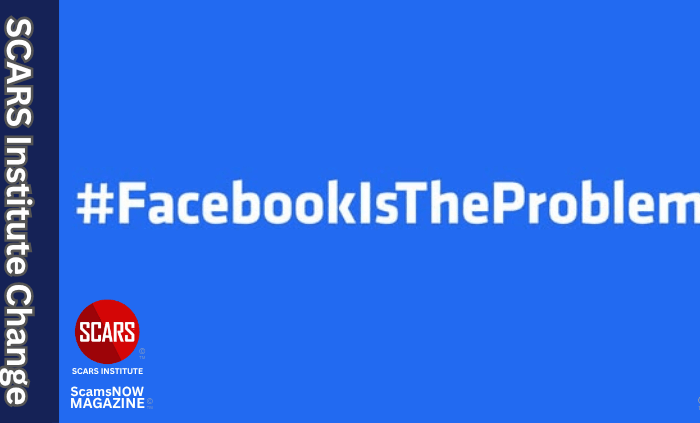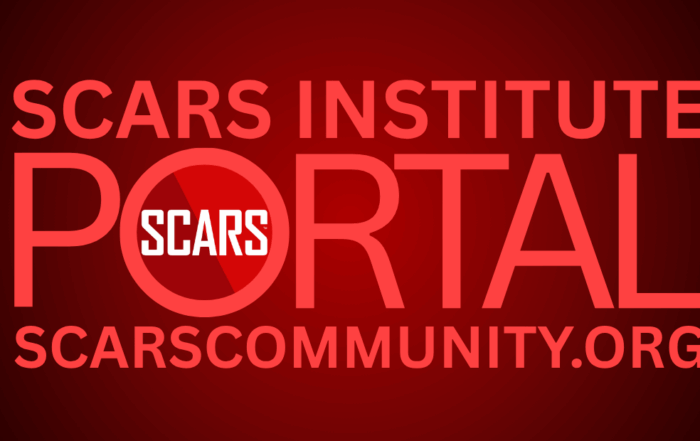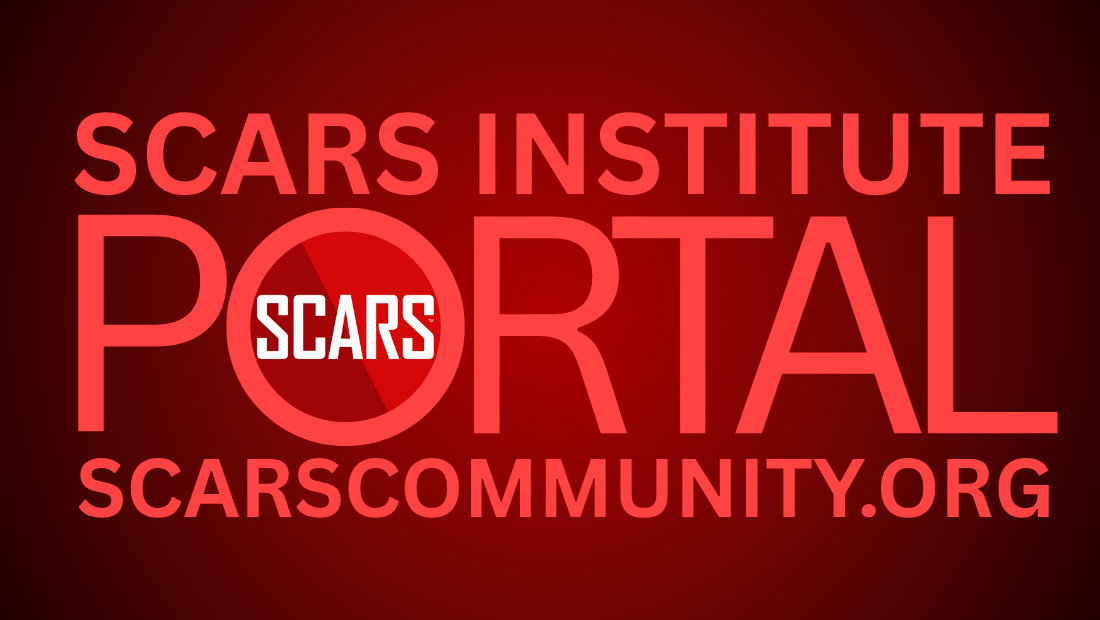Romance Scam Victim Steals And Gives To Her Scammer
An Example Of The Level Of Control Scammers Have Over Their Victims
Author:
• SCARS Editorial Team – Society of Citizens Against Relationship Scams Inc.
Article Abstract
A tragic case unfolds as Sharon Ann Schmalzriedt, a Minnesota woman and romance scam victim, faces charges for embezzling $3.75 million from a local business and misappropriating $17,150 from a vulnerable adult. Allegedly entangled in an online romance, she funneled funds to an individual named Erik Lockwood, misled by his claims of needing US currency to access millions owed.
As the business’s bookkeeper, her breach of trust exposed the perils of misplaced confidence, impacting both the company’s finances and the well-being of a vulnerable adult. This serves as a cautionary tale, underscoring the dangers of online relationships and the profound repercussions of unwarranted trust.
Minnesota Romance Scam Victim Woman Charged with Embezzling Millions from Business and Exploiting Vulnerable Adult
Sharon Ann Schmalzriedt, 61, of Wabasha, Minnesota, a romance scam victim, faces serious criminal charges after allegedly embezzling over $3.75 million from a Lewiston business and stealing $17,150 from a vulnerable adult in her care. The funds, intended for business accounts and nursing home fees, were funneled to an online stranger.
Court documents reveal a months-long scheme that began in October 2019 where she stole and gave the money to her romance scammer.
Schmalzriedt, working remotely as the business’s bookkeeper, enjoyed trust and access to its finances. However, alarm bells sounded in May 2023 when the owner noted suspicious transfers to unfamiliar organizations – some even sharing routing numbers. An external audit confirmed the worst: Schmalzriedt had been systematically siphoning off millions.
When confronted, Schmalzriedt confessed to the embezzlement and admitted deleting transactions to cover her tracks.
Her motive? An online romance with a man named Erik Lockwood, who allegedly claimed he owed millions but needed US currency to access it. Schmalzriedt, caught in a web of deception and desperation, tapped into both her own funds and the business’s coffers, even neglecting the financial needs of a vulnerable adult under her care.
On December 20, Wabasha County Court charged Schmalzriedt with two counts: theft exceeding $35,000 and financial exploitation of a vulnerable adult exceeding $5,000. This case serves as a stark reminder of the potential pitfalls of online relationships and the devastating consequences of misplaced trust, both in business and personal settings.
According to ABC75 News
A Wabasha woman is facing criminal charges after allegedly embezzling over $3 million from a business and over $17,000 from a vulnerable adult in her care to send to a man she met online.
Sharon Ann Schmalzriedt, 61, was charged in Wabasha County Court on Dec. 20 with one count of theft over $35,000 and one count of financial exploitation of a vulnerable adult over $5,000.
A criminal complaint states that on April 17, agents with the Minnesota Bureau of Criminal Apprehension (BCA) were asked to assist in an investigation into a Lewiston, Minn. business that was defrauded out of millions of dollars.
The owner of the business told law enforcement that Schmalzriedt, a bookkeeper working remotely for the business, had embezzled over two million dollars since October 2019.
During her employment, Schmalzriedt was responsible for payroll, paying vendors, and maintaining the businesses’ financial records, according to the owner.
The owner of the business said he hired an outside firm to look into the business’s financial records after noticing multiple transfers of cash to organizations the business did not work with, some of which listed the same routing numbers for multiple businesses.
The complaint states that on Feb. 14, the owner asked Schmalzriedt to supply copies of the business ledger within two weeks. After two weeks, Schmalzriedt asked the owner for more time to provide copies. After reviewing the work Schmalzriedt had been doing, the outside firm found that she was deleting multiple payments from the business’s ledgers.
Schmalzriedt was fired from the business on March 31 for gross negligence, according to court records.
Agents with the BCA determined that the business lost $3,751,337 since the transactions began in October 2019.
In May, law enforcement officials interviewed Schmalzriedt, who told them that she had been having marital problems in October 2019 when she began an online relationship with a man named Erik Lockwood.
Lockwood allegedly told Schmalzriedt that he was owed $7 million from work he completed in Dubai, but he needed to borrow U.S. currency to acquire the money, according to the complaint. Lockwood told Schmalzriedt he would repay her for the money.
Schmalzriedt first began sending her own money, and then money she had permission to borrow from the business’s owner. However, Schmalzriedt started transferring money to businesses associated with Lockwood that the owner was not aware of.
While speaking with law enforcement, Schmalzriedt admitted she did not have permission to transfer the money and that she knew it was wrong. She also admitted to deleting transactions to hide the money transfers from the business’s owner.
Schmalzriedt told agents with the BCA that she had also taken $17,150 from a vulnerable adult in her care, which was meant to go to the victim’s nursing home.
More:
- Scam Victim Commits Crimes For Their Scammers (scamsnow.com)
- Loren Esse of Des Moines – Police Arrest A Money Mule (scamsnow.com)
- 67 Year Old Money Mule Convicted (scamsnow.com)
- Cybercriminal Mole – UK Police Arrest One Of Their Own! (scamsnow.com)Relationship Scam Victims – Impact On Employment And Jobs – Saving Employment After A Scam (scamsnow.com)
- Conformity & Romance Scams And How It Affects Scam Victims 2023 (scamsnow.com)
- 96 Year Old Romance Scam Victim (scamsnow.com)
- A Tragic Canadian Romance Scam Victim Story (scamsnow.com)
- Changes In A Scam Victim’s Life (scamsnow.com)
SCARS Resources:
- For New Victims of Relationship Scams newvictim.AgainstScams.org
- Subscribe to SCARS Newsletter newsletter.againstscams.org
- Sign up for SCARS professional support & recovery groups, visit support.AgainstScams.org
- Find competent trauma counselors or therapists, visit counseling.AgainstScams.org
- Become a SCARS Member and get free counseling benefits, visit membership.AgainstScams.org
- Report each and every crime, learn how to at reporting.AgainstScams.org
- Learn more about Scams & Scammers at RomanceScamsNOW.com and ScamsNOW.com
- Global Cyber Alliance ACT Cybersecurity Tool Website: Actionable Cybersecurity Tools (ACT) (globalcyberalliance.org)
- Self-Help Books for Scam Victims are at shop.AgainstScams.org
- Donate to SCARS and help us help others at donate.AgainstScams.org
- Worldwide Crisis Hotlines: International Suicide Hotlines – OpenCounseling : OpenCounseling
- Campaign To End Scam Victim Blaming – 2024 (scamsnow.com)
More ScamsNOW.com Articles
-/ 30 /-
What do you think about this?
Please share your thoughts in a comment above!
SCARS LINKS: AgainstScams.org RomanceScamsNOW.com ContraEstafas.org ScammerPhotos.com Anyscam.com ScamsNOW.com
reporting.AgainstScams.org support.AgainstScams.org membership.AgainstScams.org donate.AgainstScams.org shop.AgainstScams.org
youtube.AgainstScams.org linkedin.AgainstScams.org facebook.AgainstScams.org
ARTICLE RATING
TABLE OF CONTENTS
- An Example Of The Level Of Control Scammers Have Over Their Victims
- Article Abstract
- Minnesota Romance Scam Victim Woman Charged with Embezzling Millions from Business and Exploiting Vulnerable Adult
- When confronted, Schmalzriedt confessed to the embezzlement and admitted deleting transactions to cover her tracks.
- According to ABC75 News
- More:
- SCARS Resources:
CATEGORIES
U.S. & Canada Suicide Lifeline 988
![NavyLogo@4x-81[1] Romance Scam Victim Steals And Gives To Her Scammer - 2024](https://scamsnow.com/wp-content/uploads/2025/04/NavyLogo@4x-811.png)
ARTICLE META
Important Information for New Scam Victims
- Please visit www.ScamVictimsSupport.org – a SCARS Website for New Scam Victims & Sextortion Victims.
- SCARS Institute now offers its free, safe, and private Scam Survivor’s Support Community at www.SCARScommunity.org – this is not on a social media platform, it is our own safe & secure platform created by the SCARS Institute especially for scam victims & survivors.
- SCARS Institute now offers a free recovery learning program at www.SCARSeducation.org.
- Please visit www.ScamPsychology.org – to more fully understand the psychological concepts involved in scams and scam victim recovery.
If you are looking for local trauma counselors, please visit counseling.AgainstScams.org
If you need to speak with someone now, you can dial 988 or find phone numbers for crisis hotlines all around the world here: www.opencounseling.com/suicide-hotlines
Statement About Victim Blaming
Some of our articles discuss various aspects of victims. This is both about better understanding victims (the science of victimology) and their behaviors and psychology. This helps us to educate victims/survivors about why these crimes happened and not to blame themselves, better develop recovery programs, and help victims avoid scams in the future. At times, this may sound like blaming the victim, but it does not blame scam victims; we are simply explaining the hows and whys of the experience victims have.
These articles, about the Psychology of Scams or Victim Psychology – meaning that all humans have psychological or cognitive characteristics in common that can either be exploited or work against us – help us all to understand the unique challenges victims face before, during, and after scams, fraud, or cybercrimes. These sometimes talk about some of the vulnerabilities the scammers exploit. Victims rarely have control of them or are even aware of them, until something like a scam happens, and then they can learn how their mind works and how to overcome these mechanisms.
Articles like these help victims and others understand these processes and how to help prevent them from being exploited again or to help them recover more easily by understanding their post-scam behaviors. Learn more about the Psychology of Scams at www.ScamPsychology.org
SCARS INSTITUTE RESOURCES:
If You Have Been Victimized By A Scam Or Cybercrime
♦ If you are a victim of scams, go to www.ScamVictimsSupport.org for real knowledge and help
♦ SCARS Institute now offers its free, safe, and private Scam Survivor’s Support Community at www.SCARScommunity.org – this is not on a social media platform, it is our own safe & secure platform created by the SCARS Institute especially for scam victims & survivors.
♦ Enroll in SCARS Scam Survivor’s School now at www.SCARSeducation.org
♦ To report criminals, visit https://reporting.AgainstScams.org – we will NEVER give your data to money recovery companies like some do!
♦ Follow us and find our podcasts, webinars, and helpful videos on YouTube: https://www.youtube.com/@RomancescamsNowcom
♦ Learn about the Psychology of Scams at www.ScamPsychology.org
♦ Dig deeper into the reality of scams, fraud, and cybercrime at www.ScamsNOW.com and www.RomanceScamsNOW.com
♦ Scam Survivor’s Stories: www.ScamSurvivorStories.org
♦ For Scam Victim Advocates visit www.ScamVictimsAdvocates.org
♦ See more scammer photos on www.ScammerPhotos.com
You can also find the SCARS Institute’s knowledge and information on Facebook, Instagram, X, LinkedIn, and TruthSocial
Psychology Disclaimer:
All articles about psychology and the human brain on this website are for information & education only
The information provided in this and other SCARS articles are intended for educational and self-help purposes only and should not be construed as a substitute for professional therapy or counseling.
Note about Mindfulness: Mindfulness practices have the potential to create psychological distress for some individuals. Please consult a mental health professional or experienced meditation instructor for guidance should you encounter difficulties.
While any self-help techniques outlined herein may be beneficial for scam victims seeking to recover from their experience and move towards recovery, it is important to consult with a qualified mental health professional before initiating any course of action. Each individual’s experience and needs are unique, and what works for one person may not be suitable for another.
Additionally, any approach may not be appropriate for individuals with certain pre-existing mental health conditions or trauma histories. It is advisable to seek guidance from a licensed therapist or counselor who can provide personalized support, guidance, and treatment tailored to your specific needs.
If you are experiencing significant distress or emotional difficulties related to a scam or other traumatic event, please consult your doctor or mental health provider for appropriate care and support.
Also read our SCARS Institute Statement about Professional Care for Scam Victims – click here
If you are in crisis, feeling desperate, or in despair, please call 988 or your local crisis hotline.
More ScamsNOW.com Articles
A Question of Trust
At the SCARS Institute, we invite you to do your own research on the topics we speak about and publish. Our team investigates the subject being discussed, especially when it comes to understanding the scam victims-survivors’ experience. You can do Google searches, but in many cases, you will have to wade through scientific papers and studies. However, remember that biases and perspectives matter and influence the outcome. Regardless, we encourage you to explore these topics as thoroughly as you can for your own awareness.
























![scars-institute[1] Romance Scam Victim Steals And Gives To Her Scammer - 2024](https://scamsnow.com/wp-content/uploads/2025/04/scars-institute1.png)
![niprc1.png1_-150×1501-1[1] Romance Scam Victim Steals And Gives To Her Scammer - 2024](https://scamsnow.com/wp-content/uploads/2025/04/niprc1.png1_-150x1501-11.webp)
